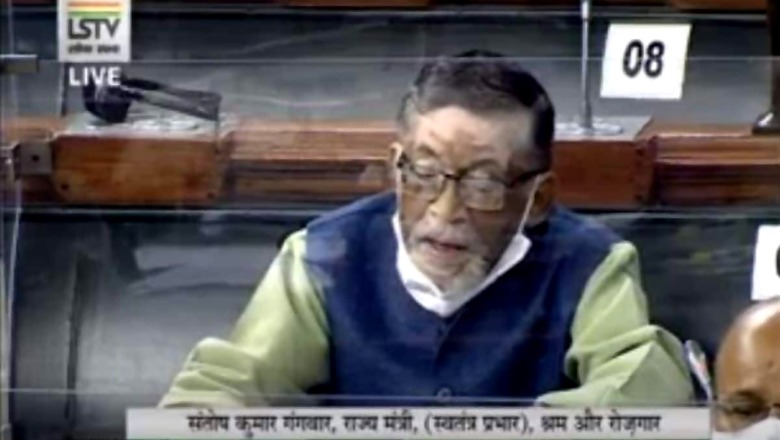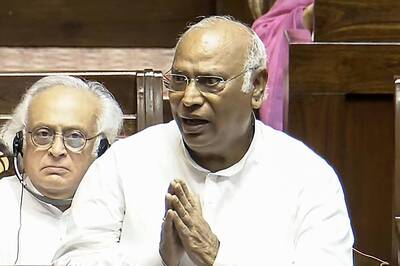
views
New Delhi: Labour Minister Santosh Gangwar on Monday said the money collected from compounding of offences under labour laws would be used towards the social security fund (SSF) to implement welfare schemes for unorganised workers. Parliament passed the Code on Social Security in the monsoon session which concluded last month. It provides for creating an SSF to implement social security schemes for unorganised sector workers, gig workers and platform workers. There are around 40 crore informal workers in the country.
It has been provided in the Code that the SSF would created by funds received from "the composition (compounding) of the offences (under labour laws)", among other sources like central and state government funding. Similar provisions have been provided in the other two codes on industrial relations and occupational safety, health and working conditions (OSH).
"We have provided for compounding of offences to reduce pendency of litigations (related to labour) and speedy disposal of such cases. The money collected from compounding of offences would be used to fund social security fund for unorganised workers," Gangwar said. He was addressing the 86th AGM of the All India Organisation of Employers (AIOE). The minister further said, "Many schemes would be designed by using this social security fund. This is an example, how we struck a right balance between needs of employer and employees while making provisions in the (labour) laws." The AIOE, which is an allied body of industry chamber Ficci, held its annual general meeting (AGM) on the theme of 'Labour Reforms: Meeting the Challenges during and Post-COVID'.
On this occasion, Dagmar Walter, Director – ILO DWT for South Asia and Country Office for India, said, "The labour reforms in the post COVID-19 scenario need to ensure sustainable solutions, which are capacitated to protect the most vulnerable. We will need measures ensuring the development of a just and inclusive society. We need to respond to new emerging market challenges but with efforts informed by strong evidences and dialogue processes." "The success of the new labour codes will primarily depend upon its implementation strategy, capacity of local and state institutions and participation of social partners," she added. The government is in the process of implementing the four labour codes on wages, industrial relations, social security and OSH. The Code on Wages, 2019 was passed last year and its draft rules were notified.
The government has finalised the rules on the Code on Wages which would be implemented with final rules of other three codes as these laws are inter-linked. The Centre plans to operationalise all the four labour codes by implementing rules for the same by December this year.
.




















Comments
0 comment